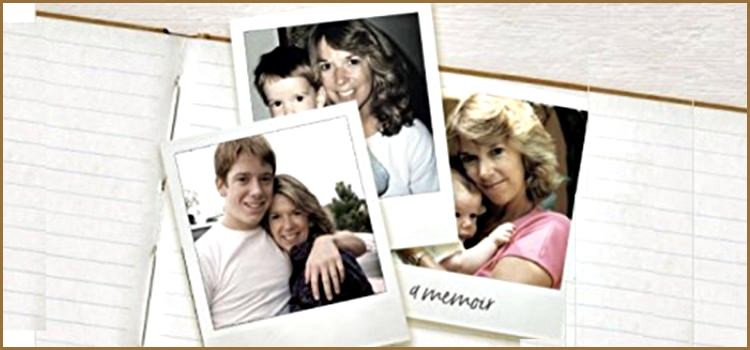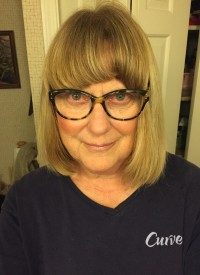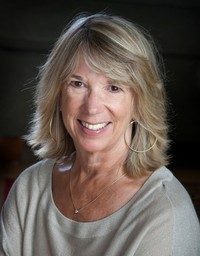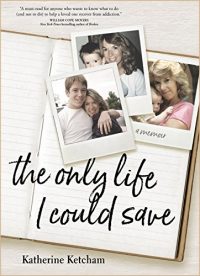The Only Life I Could Save: A Memoir

Review By Linda Farris Kurtz
Many readers will recognize Katherine Ketcham’s name from the sixteen books she has co-authored with other writers: Under the Influence with James Milam and The Spirituality of Imperfection with Ernest Kurtz to name but two. The Only Life I Could Save: A Memoir is Kathy’s first solo book effort, a memoir that tells the story of her son’s slide into addiction and her family’s frantic efforts over many years to help him stop his use of chemicals.
It’s a harrowing tale. It’s a tale that will be familiar to all too many who read it – a tale that describes the agonizing state of watching a child, spouse, friend, or other loved one be sucked into addictive use of something life-ruining – drugs, alcohol, gambling, food – you name it. And this happens while the family sits by watching, reaching out, trying to help, but finding that nothing they do really helps, and some things they do make it worse. Efforts to help fall apart as the potential helper sits by powerlessly while the addict blunders on destroying his or her life.
Kathy introduces the book by describing how she and her husband, Patrick, drop Ben, her son, off at a treatment program in 2005. The next chapter takes the reader back to 1976 when Kathy gets her first job with the Seattle Post-Intelligencer newspaper at age 27, as an aspiring writer. It’s her good fortune and ours that her editor is a charming recovering alcoholic who suggests that she write some articles about James Milam, a challenge that led to her first co-authored book with Milam.
Kathy declares that she’s not a religious person, but she does admit to believing in a “force” that works miracles in the world. That’s easy to believe because Kathy and Jim Milam succeed in finding a publisher who even offers an advance, and after 50,000 books are sold, Bantam Books buys the paperback edition for $17,000. Unbelievable success for first time authors. These book contracts keep coming for Kathy.
We read more about Kathy’s career, her family, and her work with drug and alcohol addicted teens in subsequent chapters. The heart of the memoir, however, is son Ben’s descent into addiction and his parents’ agonizing efforts to save him. In the fourth chapter, which covers the years 1993-2001, Ben’s elementary school year’s end; Ben is caught buying marijuana and charged with “minor-in-possession.” Kathy reminds herself that Ben is not addicted, and consoles herself believing she would recognize addiction. She is still “the big know it all” who she realizes later “doesn’t know a damn thing.”
The next chapter begins with the sudden death of John, Ben’s best friend, in a football accident. This has a powerful negative effect on Ben from which he never fully recovers. By his sophomore year Ben’s grief turns into depression and his drug use begins in earnest. They go through periods of use, attempts to quit, followed by more use and personality changes that make the normally happy, sweet son an angry, rebellious one. Kathy and her husband, Patrick Spencer, struggle to find a way to persuade him to stop.
Kathy looks back at her own books seeking some answers to the situation she never thought she would be in. The only one that helps is The Spirituality of Imperfection, the book she wrote with Ernie Kurtz, published by Bantam Books in 1992. In one passage, he reminds her that “As so often in the realm of spirituality and its antithesis, addiction, ‘alcoholic’ means simply human being writ large” (p. 86). She emails Ernie and he replies, “the most important thing is that Ben knows deep down that you care about and love him… we do what we can but all any of us can do is trudge on… we really have no choice.” (p. 86).
In several places, Kathy tells us her concept of God. On page 39, talking to some of the juveniles with whom she volunteers, she tells them she’s not sure if she believes in God. She believes in a “force for good in the world, not in a white bearded person up in heaven.” At the beginning of Chapter 12, as she gets more desperate – the chapter is titled “help me,” she gets closer to believing in God, but “Not the God in the clouds… the God that dispenses special favors to certain people but not to others, not the God of Thunderous Judgments, Rapturous Returns, or Purgatory and Perdition.” She believes in the “Unknown God… the God of nature – perhaps the same God Henry David Thoreau met in the woods.” (p. 171) And, she whispers “help me.”
At the end of Ben’s junior year in high school he is arrested on another “minor-in-possession charge”, his second arrest. He is alternately contrite and defiant. He raises his parents’ hopes and then destroys them – a familiar refrain. Ben gets ready to go to college and subsequently drops out. This is followed by a long-term treatment period that his parents must pay for by getting a second mortgage on the house and borrowing tens of thousands of dollars from family.
A high point in the story comes in January 2006 when Kathy and her family attend family week at the treatment center. After three days with the other families, Kathy realizes the meaning of the “mutuality” she and Ernie wrote about in The Spirituality of Imperfection – we get by giving, we give by getting. “We find self – ourselves – only through the actual practice of locating ourselves within the community of our fellow human beings.” (p. 160) (I think of this as secular spirituality.) This section of the story comes as a relief to the reader who has been suffering though the ups and downs of Ben’s addiction. Now, at least there is some relief of the anguish his parents feel and we also feel along with them.
Kathy does not mention the Twelve Steps or Al-Anon in her book. If she drew on these resources, she keeps that to herself. Kathy shows us how she endured this experience in her beautiful and evocative prose throughout the book.
This skill manifests especially in the section near the end of the book when she recognizes the truth of words written years before with Ernie, but made especially salient in this meeting with other families. She draws on the experience of many friends throughout this very long ordeal, most often with my husband, Ernie Kurtz, but also Jeff and Debra Jay, William Moyers and others. The long struggle finally ends after seven years and Ben is one of the fifteen percent who live through it. How it happens is well worth reading about and I won’t spoil the ending by revealing it.
How Kathy and her family live the struggle and survive it is even more worth the reading. She wrote this book for those parents, siblings, spouses and other loved ones who suffer along with the person with the disease of addiction and they will not be disappointed. I highly recommend The Only Life I Could Save: A Memoir for anyone who has been touched by the trauma of addiction, particularly those going through something similar right now.

Linda Kurtz joined the University of Georgia Social Work faculty in Georgia and in 1979 was one of the first people to read “Not-God: A History of Alcoholics Anonymous”, written by Ernest Kurtz. Ernie joined the University of Georgia history faculty in 1979. They were married in August 1980 and Linda began attending open AA meetings with Ernie. Linda has published two books on self-help groups as well as numerous research articles. Ernie passed away in 2015. Linda still lives in their house in Ann Arbor with their two dogs, Lacey and Maddie. You can visit her personal website here: Linda Farris Kurtz.
 Katherine Ketcham is the coauthor of 16 books, including the New York Times bestseller Broken: My Story of Addiction and Redemption by William Moyers and the bestselling classics Under the Influence with James Milam and The Spirituality of Imperfection with Ernest Kurtz. More than 1.4 million copies of her books are in print, and her books have been translated into 13 languages. She has three adult children and lives in Walla Walla, Washington with her husband. You can visit her website and learn more about her books right here: Katherine Ketcham Books.
Katherine Ketcham is the coauthor of 16 books, including the New York Times bestseller Broken: My Story of Addiction and Redemption by William Moyers and the bestselling classics Under the Influence with James Milam and The Spirituality of Imperfection with Ernest Kurtz. More than 1.4 million copies of her books are in print, and her books have been translated into 13 languages. She has three adult children and lives in Walla Walla, Washington with her husband. You can visit her website and learn more about her books right here: Katherine Ketcham Books.


























Just happened to see this wonderful review by Linda Kurtz of Katherine Ketcham’s riveting memoir. It was a delight to read, thanks for posting it.
Somehow I’ve slipped off your email list because I didn’t get notice that you had posted it. The last email I got from you was on April 10th . . .
Hi Thomas,
Information about this review will be included in an email I will send this coming Thursday.
You can subscribe directly to the website, however, and be immediately informed of all new posts, right here (on the top left hand corner of the homepage):
It would be a good idea, as I may not be doing these emails in the future.
Best wishes, brother!